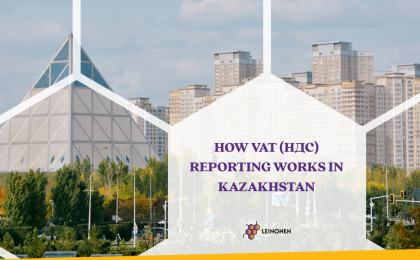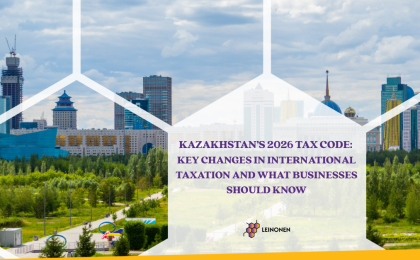In September 2023, President Tokaev conveyed crucial considerations on tax policies in his national address. With the aim of achieving economic goals such as the modernization and diversification of the economy, Kazakhstan is set to recalibrate its tax policies, culminating in the drafting of a new Tax Code. This anticipated code is slated to take effect in 2024, and the tax insights from the Presidential address are pivotal in understanding its potential implications.
We have compiled a summary of the anticipated reforms.
Expect a simplification of tax reporting, with a significant reduction in existing tax reporting forms and the abolition of some taxes. This shift primarily targets smaller taxes and fees where collection costs surpass revenues.
VAT refunds, a source of many complaints, will undergo simplification, addressing delays.
Tax administration is poised to transition to a service model, prioritizing the facilitation and prevention of tax offenses over the investigation of existing violations. The new tax code is anticipated to enhance tax administration and risk categorization for taxpayers, offering greater certainty.
The manufacturing industry is in for significant incentives, including a 3-year tax holiday.
Different sectors of the economy will face varying tax rates, with expectations of a 26% Corporate Income Tax (CIT) for mining, banking, and the oil and gas sector. The government’s efforts to repatriate large domestic groups may lead to the introduction of a participation exemption regime.
VAT reforms were not addressed explicitly, but some reports have suggested that the current 12 % VAT rate could be increased to 16 % over time.
The longstanding flat individual income tax is poised to evolve into a progressive tax on non-employment, passive income items like dividends and interest. Conversely, the scope for a simplified tax (4% on the gross proceeds of small entrepreneurs) will broaden. This means that active and employment income will continue to be taxed at moderate rates, with the increase primarily affecting passive income.
Summary
The Presidential address signals a shift towards decentralized fiscal policy, tax simplification, digitized tax administration, and the attraction of foreign investment in key sectors. Monitoring changes in regional incentives, tax reporting, VAT refunds, minimum wage adjustments, and emerging priority sectors is crucial for foreign businesses.
As the final tax rates and details are yet to be disclosed, it is advisable to closely follow these developments, especially considering that many changes are set to take effect in the coming months.




